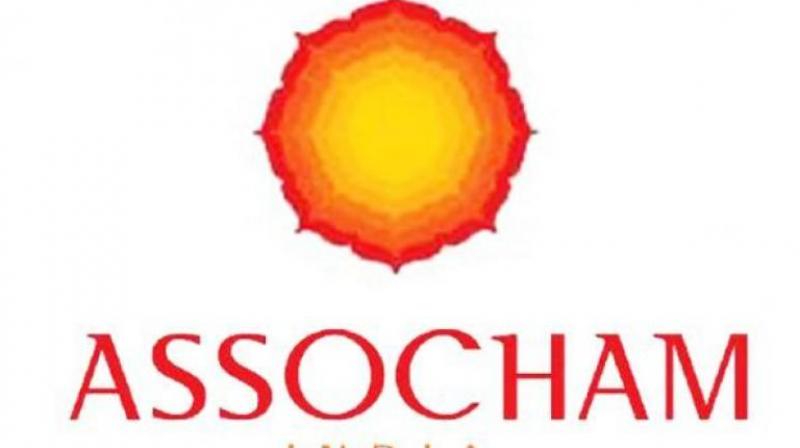ASSOCHAM calls for urgent fixing of twin balance sheet problem
The Rs 2 lakh crore capial infusion, as announced by the government must be speeded up.

New Delhi: Inability of the banks, reeling under the mammoth problem of non-performing assets (NPA) to lend, coupled with lack of appetite for fresh investment by highly indebted India Inc. has resulted in most of the industry sectors reporting negative growth in deployment of gross bank credit, the ASSOCHAM has said.
Dissecting the Reserve Bank of India (RBI) data, the ASSOCHAM noted with concern how sectors after sectors, including sugar, petroleum, coal products, petro-chemicals, cement and cement products, basic metals and metal products, have shown drop in deployment of gross bank credit between minus two per cent and 19 pe rcent in the financial year of 2017-18. .
Even the fertiliser sector which holds better prospects due to expectations of normal monsoon, has shown a huge degrowth in credit deployment to the extent of 19.3 per cent up to February 16, in the financial year 2017-18, on sequential basis.
Likewise, petro-chemicals firms also showed a huge negative growth of over 19 per cent in credit deployment up to February 16. Besides the industry sectors, the key infrastructure like road, power and telecommunication, also showed a negative trend between 1.6 per cent and six per cent.
"The problem of twin balance sheets is very much reflected in the RBI data of credit deployment. While the banks are struggling with their rising NPAs and huge requirements of provisioning that goes with the same, the corporate India is still reeling under high leverage in sectors like roads, power, telecommunication and others," said ASSOCHAM Secretary General D S Rawat.
However, things seem to be improving for some sectors like mining and quarrying, tea, manmade textiles, rubber, plastic and glassware.
"But a large part of the industy is still not out of the woods, if the credit deployment is any indication," the chamber said, adding that it would still take a few more quarters before things look up brighter.
D S Rawat said that there needs to be a sense of urgency in repairing the balance sheets of the Public Sector Undertaking (PSU) banks.
The Rs 2 lakh crore capial infusion, as announced by the government must be speeded up, even as the lenders wait impatiently from some cash accruing back as a result of successful resolution plans under the insolvency process, he said.
Tough RBI guidelines on provisioning for the NPAs, are also adding to the pressure, Rawat concluded.

